| Listing 1 - 10 of 22 | << page >> |
Sort by
|
Book
ISBN: 9780190228552 Year: 2016 Publisher: New York, N.Y. Oxford University Press
Abstract | Keywords | Export | Availability | Bookmark
 Loading...
Loading...Choose an application
- Reference Manager
- EndNote
- RefWorks (Direct export to RefWorks)
" Many observers predicted the collapse of the Chinese Communist Party following the Tiananmen Square crackdown in 1989, and again following the serial collapse of communist regimes behind the Iron Curtain. Their prediction, however, never proved true. Despite minor setbacks, China has experienced explosive economic growth and relative political stability ever since 1989. In The Dictator's Dilemma, eminent China scholar Bruce Dickson provides a comprehensive explanation for regime's continued survival and prosperity. Dickson contends that the popular media narrative of the party's impending implosion ignores some basic facts. The regime's policies may generate resentment and protest, but the CCP still enjoys a surprisingly high level of popular support. Nor is the party is not cut off from the people it governs. It consults with a wide range of specialists, stakeholders, and members of the general public in a selective yet extensive manner. Further, it tolerates and even encourages a growing and diverse civil society, even while restricting access to it. Today, the majority of Chinese people see the regime as increasingly democratic even though it does not allow political competition and its leaders are not accountable to the electorate. In short, while the Chinese people may prefer change, they prefer that it occurs within the existing political framework. In reaching this conclusion, Dickson draws upon original public opinion surveys, interviews, and published materials to explain why there is so much popular support for the regime. This basic stability is a familiar story to China specialists, but not to those whose knowledge of contemporary China is limited to the popular media. The Dictator's Dilemma, an engaging synthesis of how the CCP rules and its future prospects, will enlighten both audiences, and will be essential for anyone interested in understanding China's increasing importance in world politics. "-- "In The Dictator's Dilemma, eminent China scholar Bruce Dickson explains in highly accessible prose why the Communist Party regime has survived and prospered, despite constant predictions of its weakening and demise"--
S06/0424 --- S06/0255 --- S06/0425 --- China: Politics and government--CCP: since 1989 --- China: Politics and government--Political theory: modern (and/or under Western influence) --- China: Politics and government--Organization and structure of the CCP --- Political stability --- Public opinion --- Opinion publique --- Zhongguo gong chan dang. --- China --- Chine --- Politics and government --- Politique et gouvernement --- Internal politics --- Chinese Communist Party --- Political sociology
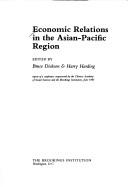
ISBN: 0815718411 Year: 1987 Publisher: Washington, D.C.
Abstract | Keywords | Export | Availability | Bookmark
 Loading...
Loading...Choose an application
- Reference Manager
- EndNote
- RefWorks (Direct export to RefWorks)
339<5-012> --- 339<5-012> Handel. Internationale economische betrekkingen. Wereldeconomie --binnenlandse als buitenlandse handel; zie ook {339.3} en {339.5}--Verre Oosten --- Handel. Internationale economische betrekkingen. Wereldeconomie --binnenlandse als buitenlandse handel; zie ook {339.3} en {339.5}--Verre Oosten --- China --- East Asia --- Pacific Area --- United States --- Asia, East --- Asia, Eastern --- East (Far East) --- Eastern Asia --- Far East --- Orient --- ABŞ --- ABSh --- Ameerika Ühendriigid --- America (Republic) --- Amerika Birlăshmish Shtatlary --- Amerika Birlăşmi Ştatları --- Amerika Birlăşmiş Ştatları --- Amerika ka Kelenyalen Jamanaw --- Amerika Qūrama Shtattary --- Amerika Qŭshma Shtatlari --- Amerika Qushma Shtattary --- Amerika (Republic) --- Amerikai Egyesült Államok --- Amerikanʹ Veĭtʹsėndi︠a︡vks Shtattnė --- Amerikări Pĕrleshu̇llĕ Shtatsem --- Amerikas Forenede Stater --- Amerikayi Miatsʻyal Nahangner --- Ameriketako Estatu Batuak --- Amirika Carékat --- AQSh --- Ar. ha-B. --- Arhab --- Artsot ha-Berit --- Artzois Ha'bris --- Bí-kok --- Ē.P.A. --- EE.UU. --- Egyesült Államok --- ĒPA --- Estados Unidos --- Estados Unidos da América do Norte --- Estados Unidos de América --- Estaos Xuníos --- Estaos Xuníos d'América --- Estatos Unitos --- Estatos Unitos d'America --- Estats Units d'Amèrica --- Ètats-Unis d'Amèrica --- États-Unis d'Amérique --- Fareyniḳṭe Shṭaṭn --- Feriene Steaten --- Feriene Steaten fan Amearika --- Forente stater --- FS --- Hēnomenai Politeiai Amerikēs --- Hēnōmenes Politeies tēs Amerikēs --- Hiwsisayin Amerikayi Miatsʻeal Tērutʻiwnkʻ --- Istadus Unidus --- Jungtinės Amerikos valstybės --- Mei guo --- Mei-kuo --- Meiguo --- Mî-koet --- Miatsʻyal Nahangner --- Miguk --- Na Stàitean Aonaichte --- NSA --- S.U.A. --- SAD --- Saharat ʻAmērikā --- SASht --- Severo-Amerikanskie Shtaty --- Severo-Amerikanskie Soedinennye Shtaty --- Si︠e︡vero-Amerikanskīe Soedinennye Shtaty --- Sjedinjene Američke Države --- Soedinennye Shtaty Ameriki --- Soedinennye Shtaty Severnoĭ Ameriki --- Soedinennye Shtaty Si︠e︡vernoĭ Ameriki --- Spojené staty americké --- SShA --- Stadoù-Unanet Amerika --- Stáit Aontaithe Mheiriceá --- Stany Zjednoczone --- Stati Uniti --- Stati Uniti d'America --- Stâts Unîts --- Stâts Unîts di Americhe --- Steatyn Unnaneysit --- Steatyn Unnaneysit America --- SUA (Stati Uniti d'America) --- Sŭedineni amerikanski shtati --- Sŭedinenite shtati --- Tetã peteĩ reko Amérikagua --- U.S. --- U.S.A. --- United States of America --- Unol Daleithiau --- Unol Daleithiau America --- Unuiĝintaj Ŝtatoj de Ameriko --- US --- USA --- Usono --- Vaeinigte Staatn --- Vaeinigte Staatn vo Amerika --- Vereinigte Staaten --- Vereinigte Staaten von Amerika --- Verenigde State van Amerika --- Verenigde Staten --- VS --- VSA --- Wááshindoon Bikéyah Ałhidadiidzooígíí --- Wilāyāt al-Muttaḥidah --- Wilāyāt al-Muttaḥidah al-Amirīkīyah --- Wilāyāt al-Muttaḥidah al-Amrīkīyah --- Yhdysvallat --- Yunaeted Stet --- Yunaeted Stet blong Amerika --- ZDA --- Združene države Amerike --- Zʹi︠e︡dnani Derz︠h︡avy Ameryky --- Zjadnośone staty Ameriki --- Zluchanyi︠a︡ Shtaty Ameryki --- Zlucheni Derz︠h︡avy --- ZSA --- Η.Π.Α. --- Ηνωμένες Πολιτείες της Αμερικής --- Америка (Republic) --- Американь Вейтьсэндявкс Штаттнэ --- Америкӑри Пӗрлешӳллӗ Штатсем --- САЩ --- Съединените щати --- Злучаныя Штаты Амерыкі --- ولايات المتحدة --- ولايات المتّحدة الأمريكيّة --- ولايات المتحدة الامريكية --- 미국 --- Cina --- Kinë --- Cathay --- Chinese National Government --- Chung-kuo kuo min cheng fu --- Republic of China (1912-1949) --- Kuo min cheng fu (China : 1912-1949) --- Chung-hua min kuo (1912-1949) --- Kina (China) --- National Government (1912-1949) --- China (Republic : 1912-1949) --- People's Republic of China --- Chinese People's Republic --- Chung-hua jen min kung ho kuo --- Central People's Government of Communist China --- Chung yang jen min cheng fu --- Chung-hua chung yang jen min kung ho kuo --- Central Government of the People's Republic of China --- Zhonghua Renmin Gongheguo --- Zhong hua ren min gong he guo --- Kitaĭskai︠a︡ Narodnai︠a︡ Respublika --- Činská lidová republika --- RRT --- Republik Rakjat Tiongkok --- KNR --- Kytaĭsʹka Narodna Respublika --- Jumhūriyat al-Ṣīn al-Shaʻbīyah --- RRC --- Kitaĭ --- Kínai Népköztársaság --- Chūka Jinmin Kyōwakoku --- Erets Sin --- Sin --- Sāthāranarat Prachāchon Čhīn --- P.R. China --- PR China --- Chung-kuo --- Zhongguo --- Zhonghuaminguo (1912-1949) --- Zhong guo --- Chine --- République Populaire de Chine --- República Popular China --- Catay --- VR China --- VRChina --- 中國 --- 中国 --- 中华人民共和国 --- Jhongguó --- Bu̇gu̇de Nayiramdaxu Dundadu Arad Ulus --- Bu̇gu̇de Nayiramdaqu Dumdadu Arad Ulus --- Bu̇gd Naĭramdakh Dundad Ard Uls --- Khi︠a︡tad --- Kitad --- Dumdadu Ulus --- Dumdad Uls --- Думдад Улс --- Kitajska --- China (Republic : 1949- ) --- Economic conditions --- Foreign economic relations --- International economic relations --- Asia --- Spojené obce severoamerické --- PRC --- P.R.C. --- BNKhAU --- БНХАУ --- États-Unis --- É.-U. --- ÉU
Book
ISBN: 0190228555 0190228563 Year: 2016 Publisher: Oxford University Press, Incorporated
Abstract | Keywords | Export | Availability | Bookmark
 Loading...
Loading...Choose an application
- Reference Manager
- EndNote
- RefWorks (Direct export to RefWorks)
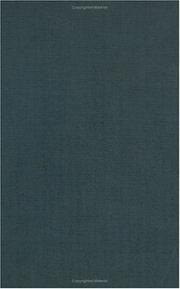
ISBN: 0198292694 Year: 1997 Volume: *3 Publisher: Oxford ; New York ; Athens Clarendon Press
Abstract | Keywords | Export | Availability | Bookmark
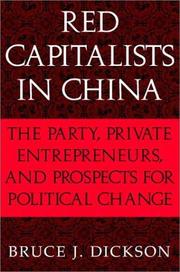
ISBN: 0521818176 0521521432 0511180063 0511061293 0511054963 051130692X 0511510047 128043452X 1139148583 0511069758 9780511069758 9780521818179 9780511061295 9780511510045 9780521521437 9786610434527 6610434522 1107135311 Year: 2003 Publisher: Cambridge, UK New York Cambridge University Press
Abstract | Keywords | Export | Availability | Bookmark
 Loading...
Loading...Choose an application
- Reference Manager
- EndNote
- RefWorks (Direct export to RefWorks)
It has become a truism that continued economic reform in China will contribute to political change. Policy makers as well as many scholars expect that formation of a private sector will lead, directly or indirectly through the emergence of a civil society, to political change and ultimately democratization. The rapidly growing numbers of private entrepreneurs, the formation of business associations, and the cooperative relationships between entrepreneurs and local officials are seen as initial indicators of a transition from China's still nominally communist political system. This book, first published in 2003, focuses on two related issues: whether the Chinese Communist Party is willing and able to adapt to the economic environment its reforms are bringing about, and whether China's 'red capitalists', private entrepreneurs who also belong to the communist party, are likely to be agents of political change.
Businessmen --- Entrepreneurship --- Political activity --- Political aspects --- Zhongguo gong chan dang. --- China --- Politics and government --- Economic policy --- S06/0424 --- S06/0423 --- S06/0405 --- S10/0251 --- China: Politics and government--CCP: since 1989 --- China: Politics and government--CCP: 1976 - 1989 --- China: Politics and government--CCP, history and ideology: general --- China: Economics, industry and commerce--General works and economic history: since 1989 --- Businessmen. --- Entrepreneurship. --- Government - Asia --- Government - Non-U.S. --- Law, Politics & Government --- Social Sciences --- Political Science --- Political activity. --- Parti communiste chinois. --- Entrepreneur --- Intrapreneur --- Business men --- Zhong guo gong chan dang --- Chung-kuo kung chʻan tang --- Chūgoku Kyōsantō --- Chungguk Kongsandang --- 中国共产党 --- 中國共產黨 --- КПК --- KPK --- Komunistická strana Číny --- Komunistička partija Kine --- Communist Party of China --- Chinese Communist Party --- Communist Party (China) --- Gong chan dang (China) --- 共产党 (China) --- Коммунистическая партия Китая --- Kommunisticheskai︠a︡ partii︠a︡ Kitai︠a︡ --- Shina Kyōsantō --- Китайска комунистическа партия --- Kitaĭska komunisticheska partii︠a︡ --- Partido Comunista de China --- PCCh --- Parti communiste chinois --- CCP --- Partito comunista cinese --- KPCh --- Kommunistische Partei Chinas --- К.П.К. --- K.P.K. --- CPC --- C.C.P. --- Partia Komuniste të Kinës --- Đảng cộng sản Trung quốc --- Zhong gong --- 中共 --- Pcc --- P.C. Chino --- ХКН --- KhKN --- Хятадын Коммунист нам --- Khi︠a︡tadyn Kommunist nam --- Capitalism --- Business incubators --- Businesspeople --- E-books --- Chinese Communistische Partij. --- Economic policy. --- Economische hervormingen. --- Entrepreneuriat --- Hommes d'affaires --- Ondernemers. --- Politics and government. --- Politieke verandering. --- Unternehmer. --- Wirtschaftspolitik. --- Aspect politique --- Activité politique --- Communist Party of China. --- 1976-2002. --- Geschichte 1976-2000. --- China. --- Chine --- Politique et gouvernement --- Politique économique
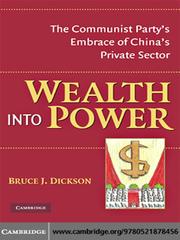
ISBN: 9780521878456 0521878454 9780521702706 0521702704 9780511790706 9780511424045 0511424043 9780511421167 0511421168 0511790708 110718343X 1281775584 9786611775582 051142356X 0511422369 0511421702 0511423020 Year: 2008 Publisher: Cambridge New York Cambridge University Press
Abstract | Keywords | Export | Availability | Bookmark
 Loading...
Loading...Choose an application
- Reference Manager
- EndNote
- RefWorks (Direct export to RefWorks)
In Wealth into Power, Bruce Dickson challenges the notion that economic development is leading to political change in China, or that China's private entrepreneurs are helping to promote democratization. Instead, they have become partners with the ruling Chinese Communist Party to promote economic growth while maintaining the political status quo. Dickson's research illuminates the Communist Party's strategy for incorporating China's capitalists into the political system and how the shared interests, personal ties, and common views of the party and the private sector are creating a form of 'crony communism'. Rather than being potential agents of change, China's entrepreneurs may prove to be a key source of support for the party's agenda. Based on years of research and original survey data, this book will be of interest to all those interested in China's political future and in the relationship between economic wealth and political power.
Entrepreneurship --- Capitalism --- Political aspects --- Zhongguo gong chan dang. --- China --- Economic policy --- COMMUNIST PARTY -- 330.17 --- #SBIB:328H52 --- #SBIB:35H6060 --- Entrepreneur --- Intrapreneur --- Business incubators --- Instellingen en beleid: China --- Bestuur en beleid: nationale en regionale studies: Azië --- Zhong guo gong chan dang --- Chung-kuo kung chʻan tang --- Chūgoku Kyōsantō --- Chungguk Kongsandang --- 中国共产党 --- 中國共產黨 --- КПК --- KPK --- Komunistická strana Číny --- Komunistička partija Kine --- Communist Party of China --- Chinese Communist Party --- Communist Party (China) --- Gong chan dang (China) --- 共产党 (China) --- Коммунистическая партия Китая --- Kommunisticheskai︠a︡ partii︠a︡ Kitai︠a︡ --- Shina Kyōsantō --- Китайска комунистическа партия --- Kitaĭska komunisticheska partii︠a︡ --- Partido Comunista de China --- PCCh --- Parti communiste chinois --- CCP --- Partito comunista cinese --- KPCh --- Kommunistische Partei Chinas --- К.П.К. --- K.P.K. --- CPC --- C.C.P. --- Partia Komuniste të Kinës --- Đảng cộng sản Trung quốc --- Zhong gong --- 中共 --- Pcc --- P.C. Chino --- ХКН --- KhKN --- Хятадын Коммунист нам --- Khi︠a︡tadyn Kommunist nam --- Parti communiste chinois. --- Chine --- Social Sciences --- Political Science
Book
ISBN: 9780691186641 Year: 2021 Publisher: Princeton : Princeton University Press,
Abstract | Keywords | Export | Availability | Bookmark
 Loading...
Loading...Choose an application
- Reference Manager
- EndNote
- RefWorks (Direct export to RefWorks)
"Since 1949, the Chinese Communist Party (CCP) has maintained an unrivaled grip over the country. Despite economic calamity, widespread social upheaval, and even violence against its own people, the party has overseen the fastest economic growth in history and only strengthened its hold on power. How has it achieved this, and how exactly does the party and the government function? What is political life like for the people of China, and how has this changed over the decades of the party's rule? Is democracy on the horizon? These are some of the questions that animate Bruce Dickson's exploration of Chinese politics today. At the core of the party's practices is a dual approach--repression when faced with existential, political threats, and responsiveness when faced with more localized economic or social unrest. Yet while the regime is responsive to a degree often unacknowledged by international observers, ultimately it is not accountable to the public. The opportunity for the public to chose leaders is limited to very local levels, and it is the party itself that chooses when to compromise and when to repress. Dickson uses this lens to illuminate a number of key questions: How are leaders chosen and how are policies made? When is protest and civic engagement allowed, and when is it suppressed? Acknowledging that the inner workings of the party remain shrouded in secrecy, Dickson draws from the full landscape of sources available to lay out what we know and what the future may hold as Xi's rule extends and takes an increasingly repressive approach to governing"--
Political parties --- Political leadership --- Political planning --- Partis politiques --- Leadership politique --- Politique publique --- Politique et gouvernement --- History. --- Histoire. --- Zhongguo gong chan dang. --- Parti communiste chinois. --- China --- Politics and government
Book
ISBN: 9780674048966 Year: 2010 Publisher: Cambridge Harvard university press
Abstract | Keywords | Export | Availability | Bookmark
 Loading...
Loading...Choose an application
- Reference Manager
- EndNote
- RefWorks (Direct export to RefWorks)
Businessmen --- Capitalism --- Capitalists and financiers --- Democratization --- Entrepreneurship --- Political activity --- Political aspects --- China --- Economic policy --- Politics and government
Book
ISBN: 0674056221 9780674056220 9780674048966 0674048962 Year: 2010 Publisher: Cambridge, Mass. Harvard University Press
Abstract | Keywords | Export | Availability | Bookmark
 Loading...
Loading...Choose an application
- Reference Manager
- EndNote
- RefWorks (Direct export to RefWorks)
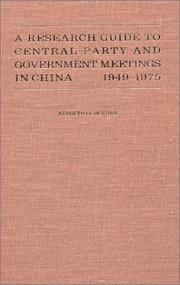
ISBN: 0873324927 Year: 1989 Publisher: Armonk Sharpe
Abstract | Keywords | Export | Availability | Bookmark
 Loading...
Loading...Choose an application
- Reference Manager
- EndNote
- RefWorks (Direct export to RefWorks)
Zhongguo gong chan dang --- History --- China --- Politics and government
| Listing 1 - 10 of 22 | << page >> |
Sort by
|

 Search
Search Feedback
Feedback About UniCat
About UniCat  Help
Help News
News